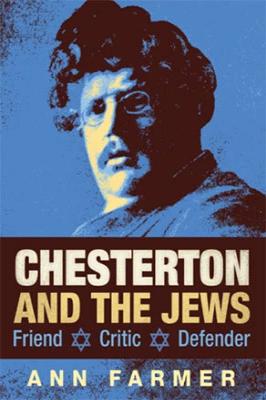
Chesterton and the Jews
Delivery in 2-9 business days.

“One runs the danger of triteness in saying that a book answers a long-felt need. But here is a book that does precisely that. Chesterton’s comments about Jews and Judaism have been the source of endless controversies and misunderstandings. Ann Farmer provides the first thorough and well-balanced discussion of the matter.”
“Ann Farmer, in Chesterton and the Jews, has ventured fearlessly into thorny and potentially perilous terrain. Her study of Chesterton’s complex relationship with the Jews is a work of meticulous scholarship that sheds much-needed light upon a misunderstood subject. For this she is to be wholeheartedly commended.”
“Chesterton and the Jews is a challenging, thoughtful, and well-researched book. The author explores whether G.K. Chesterton should be stigmatized as anti-Semitic and concludes that whilst he was not an anti-Semite, he did subscribe to beliefs influenced by anti-Semitism — a narrow but important distinction. Readers will learn that what appear to be simple words and actions are far more complicated than they seem at first glance.”
“The subject of Chesterton’s so-called anti-Semitism has bedeviled both his supporters and opponents. Ann Farmer has carefully restored Chesterton’s attitudes to their time and place, when hostility to Jews and Judaism were commonplace, before the matter moved into the realm of justifiable outrage following the Holocaust. She shows the essential complexity of Chesterton’s views and his changing attitudes in a balanced and discriminating study of the whole subject.”
“Gilbert Chesterton, who died in 1936, long before the horrors of the Holocaust were known, had always been ready to discuss Jews and Jewish matters, although those he targeted were often unsure whether his intentions were benign or not. Ann Farmer here undertakes a long-needed study of the arguments for and against Chesterton, placing him in the context of his times and his contemporaries.”
“Along with his colleague Hilaire Belloc, Chesterton is often seen as epitomizing Edwardian England’s literate anti-Semitism, despite his consistent humanity and his support of Liberalism. What has long been necessary is a careful and detailed study of this question, examining all the evidence and, most importantly, placing it in context. Ann Farmer’s new book is a most valuable and important corrective to the old misleading picture of this great and good man.”